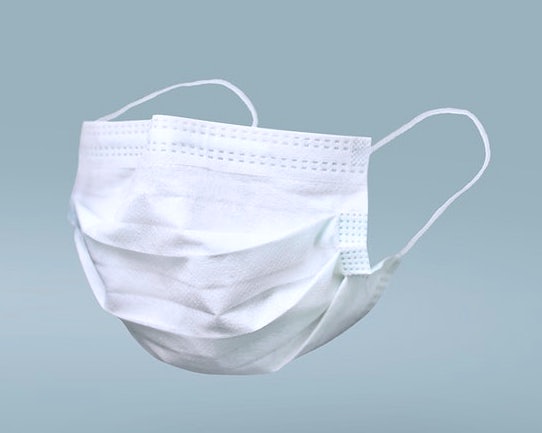- Protect Yourself and Save Others
- info@wearamask.org



A surgical mask is a loose-fitting, disposable device that creates a physical barrier between the mouth and nose of the wearer and potential contaminants in the immediate environment. Surgical masks are regulated under 21 CFR 878.4040. Surgical masks are not to be shared and may be labeled as surgical, isolation, dental, or medical procedure masks. They may come with or without a face shield. These are often referred to as face masks, although not all face masks are regulated as surgical masks.
Surgical masks are made in different thicknesses and with different ability to protect you from contact with liquids. These properties may also affect how easily you can breathe through the face mask and how well the surgical mask protects you.
If worn properly, a surgical mask is meant to help block large-particle droplets, splashes, sprays, or splatter that may contain germs (viruses and bacteria), keeping it from reaching your mouth and nose. Surgical masks may also help reduce exposure of your saliva and respiratory secretions to others.
While a surgical mask may be effective in blocking splashes and large-particle droplets, a face mask, by design, does not filter or block very small particles in the air that may be transmitted by coughs, sneezes, or certain medical procedures. Surgical masks also do not provide complete protection from germs and other contaminants because of the loose fit between the surface of the mask and your face.
Surgical masks are not intended to be used more than once. If your mask is damaged or soiled, or if breathing through the mask becomes difficult, you should remove the face mask, discard it safely, and replace it with a new one. To safely discard your mask, place it in a plastic bag and put it in the trash. Wash your hands after handling the used mask.
Source: U.S.Food and Drug Administration.
A surgical mask, also known as a fluid-resistant mask, is intended to be worn by health professionals during healthcare procedures. It is designed to prevent infections in patients and treating personnel by catching bacteria shed in liquid droplets and aerosols from the wearer's mouth and nose.
There are four levels of ASTM certification that surgical masks are classified in, depending on the level of protection they provide to the person wearing them:
Minimum protection face masks are meant for short procedures or exams that won’t involve fluid, spray, or aerosol.
Level 1 face masks often feature ear loops and are the general standard for both surgical and procedural applications, with a fluid resistance of 80 mmHg. They’re meant for low-risk situations where there will be no fluid, spray, or aerosol.
Level 2 masks, with 120 mmHg fluid resistance, provide a barrier against light or moderate aerosol, fluid, and spray.
Level 3 face masks are for heavy possible exposure to aerosol, fluid and spray, with 160 mmHG fluid resistance.
For more information visit: Thomasnet.com article on Surgical Masks.
"Standard surgical masks are as effective as respirator masks (e.g. N95, FFP2, FFP3) for preventing infection of healthcare workers in outbreaks of viral respiratory illnesses such as influenza. No head to head trial of these masks in COVID-19 has yet been published, and neither type of mask prevents all infection. Both types of mask need to be used in combination with other PPE measures. Respirator masks are recommended for protection during aerosol generating procedures (AGPs). Rapid reviews on wider PPE measures, and what counts as an AGP, are ongoing."
(March 24, 2020) The Centre for Evidence-Based Medicine
"Masks may be more effective as a “source control” because they can prevent larger expelled droplets from evaporating into smaller droplets that can travel farther."
(June 26, 2020) The University of California-San Francisco
If you are a mask manufacturer and want your face mask to be considered for publication on our website, please send a sample supply for review along with a press release. We'll then donate your masks to local organizations including medical personnel and front line workers. Only quality masks will be considered for review and highlighted on our website.